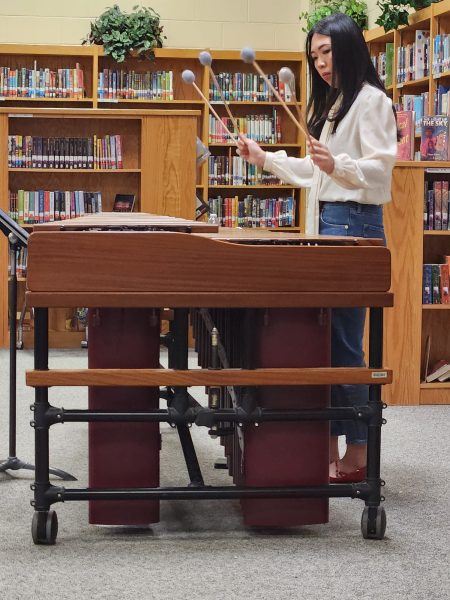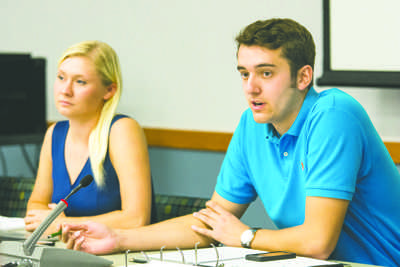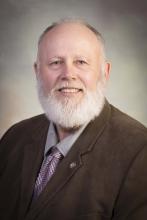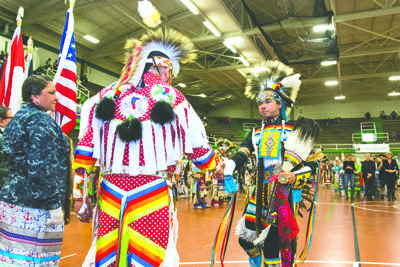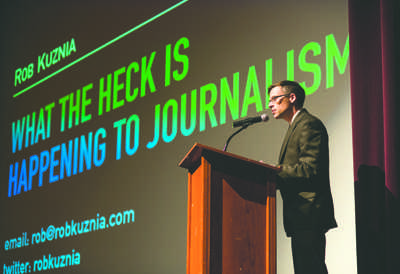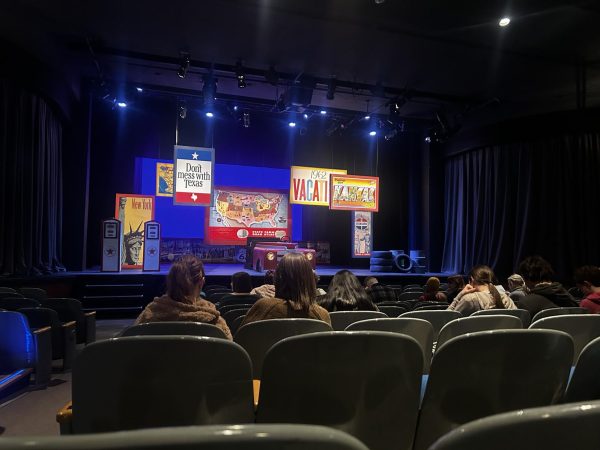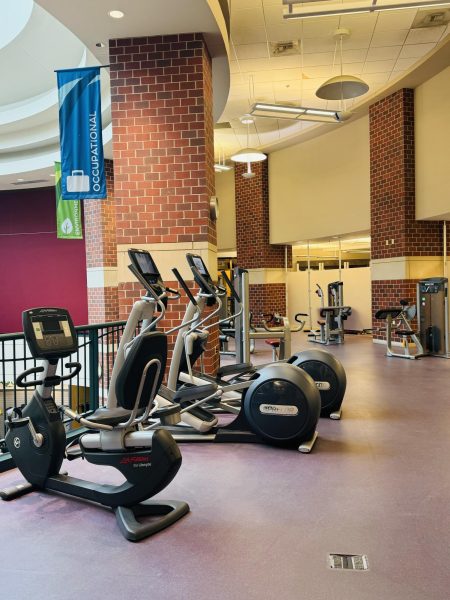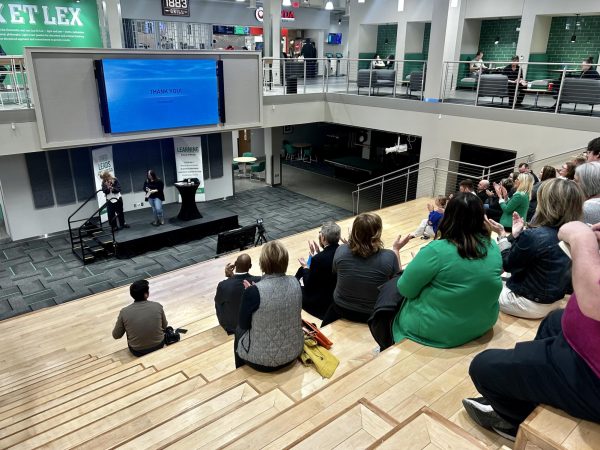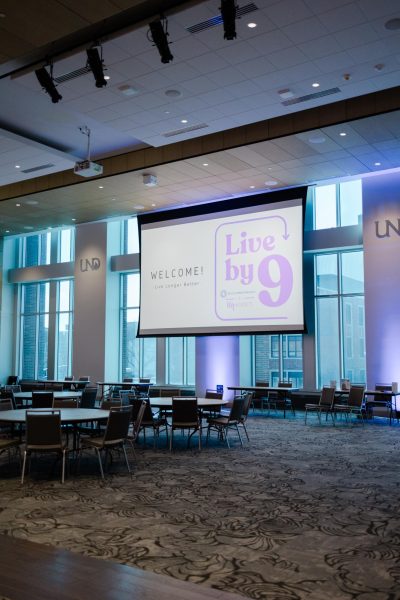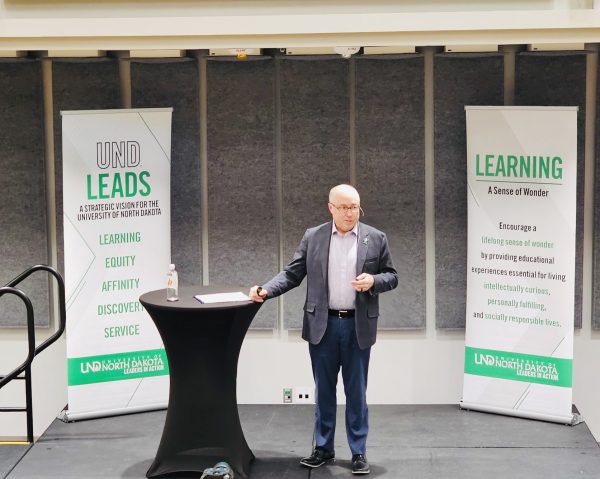UND student organization helps new Americans start business
Many people are moving across the world to finder better, safer lives for their families. Some of these people come with their own ideas of the “American Dream,” but they might not know where to begin.
Global Entrepreneur Training aims to help new Americans start small businesses in Grand Forks. The organization, which was created and is managed by UND students, will assist people who might have difficulties going through the required paperwork and steps to put their ideas to work.
Many of the people resettling in Grand Forks come to the country with great ideas. GET wants to give these people the opportunity to bring those ideas to life, according to Keegan Hilmer, GET’s communication specialist. He said it’s not matter of teaching people the basics. It’s a matter of helping them put what they already know to use.
“A lot of these people come in knowing how markets work,” he said. “They know how to interact with people and how to buy and sell stuff.”
GET will assist new Americans with the logistical side of starting a business. They also plan to provide opportunities to improve English skills. Their services are based on three parts: business incubation, the marketplace and education.
Business incubation
The incubation process will allow new Americans to bring their ideas to GET, which in turn will walk them through the steps required to build a successful business.
First they will look at the proposal in terms of viability to see if the business is one that can sustain through the worst times.
Next, during the planning stage, GET will go over how to set up a business plan and how to put it to use.
After planning comes the marketing and funding stages, which will help applicants discover how they can bring their ideas to life, even with little to no money in their pockets.
Finally, GET will work with the applicants on how to create a quality presentation to show others how their plan will fit into GET’s marketplace and the Grand Forks community.
The marketplace
The marketplace will allow entrepreneurs to “create a single market installation where they can create a revenue-generating enterprise within a supportive global market environment,” according to GET’s proposal.
The market will be located at the Grand Cities Mall, where GET is soon to sign a lease. The location will be renovated to create an open, atrium-style “mall within a mall,” where entrepreneurs can rent stalls to sell goods or services, according to Hilmer.
The location also has a kitchen, which will operate on a rotating basis among the entrepreneurs. This will provide authentic food from various cultures while ensuring that each visit to the marketplace is unique. What visitors taste one day will likely be different the next.
The quest for authenticity doesn’t stop with the food. Hilmer said GET’s vision is for renters to provide genuine cultural experiences — things that will bring awareness and understanding of their cultures — rather than simply reselling boxes of cheap knick-knacks to turn a profit.
Hand-woven tapestries and bespoke moccasins are just two examples of the types of things GET believes will allow entrepreneurs to share a bit of themselves and their cultures. Hilmer said it’s not enough for a customer to come to the market, buy something and leave. He hopes they will learn something about another culture and walk away with an experience.
Education
Even with the help of GET’s business incubation strategies and the marketplace available to new Americans, some of them will still struggle with the language barrier. This is especially true for their children.
Hilmer said he believes the schools are doing a good job teaching children who are new to the country, but he also thinks they could benefit from additional learning outside of the classroom. GET’s plan is to introduce more “everyday” English that foreign students can use to supplement the fundamentals they learn in school.
The idea is for this learning to take place in a fun, forward-thinking environment, where students will get a chance to take the things they have learned and put them to practical use.
Getting started
Practical learning outside of the classroom is something GET’s founders understand. It’s one of the reasons the organization is where it is today. Hilmer and his colleagues are strong believers in going out and making things happen.
But for college students, it isn’t always so easy to make things happen. When working with a large-scale project such as GET, investors and other groups might proceed with caution.
To prove the plan for GET wasn’t simply to have a semester or two of resume-building community service, the group had to show that the project wasn’t something they were willing to just start and then walk away from.
One person who helped them show that they were in the
project for the long haul was La Royce Batchelor, the group’s faculty advisor. Hilmer said Batchelor stressed the idea that “You didn’t actually build it if you can’t leave it.”
In order for GET to reach the point where the current staff will be able pass the reins to the next class, they’ve brought on a team of individuals who are willing to do the work required to build a solid foundation. As they move forward their roles will be defined so that anyone joining the staff will know exactly what’s expected of them.
And GET expects a lot from its team. Hilmer said they have yet to settle for “good enough.” Again, Batchelor makes sure the group doesn’t get too comfortable.
“She’ll always say, ‘We’ve accomplished a lot. What’s next?’” Hilmer said. “We’ll always have a list of 10 or 20 things to do.”
This guidance and the work ethic of GET’s members has helped make the group something to be taken seriously. So far GET has been approved for more than $200,000 in grants.
Getting things done
The funding is set. The foundation is in place. The next step for GET is to start work on the Grand Cities Mall location. They have four clients lined up to go through the incubation process to prepare for the marketplace’s opening.
Moving forward, Hilmer anticipates the need for many more volunteers. He hopes that college students will be the ones to step up because GET can offer them a chance to apply classroom theories in a professional setting.
Students’ roles would depend on their individual skills. Graphic design students could build their portfolios by designing logos and letterheads for clients. Business students could help write business plans. Finance students could help entrepreneurs manage their funds and file their taxes.
With a pool of talented students to draw from, and a skilled core already in place, GET is confident that they will help many new Americans realize their dreams. They believe they have created something that has the potential to improve the quality of life for Grand Forks’ diverse population for many years.
Those who want to know more about GET can email Keegan Hilmer at [email protected].
Lucas Amundson is the features editor for The Dakota Student.
He can be reached at [email protected]




